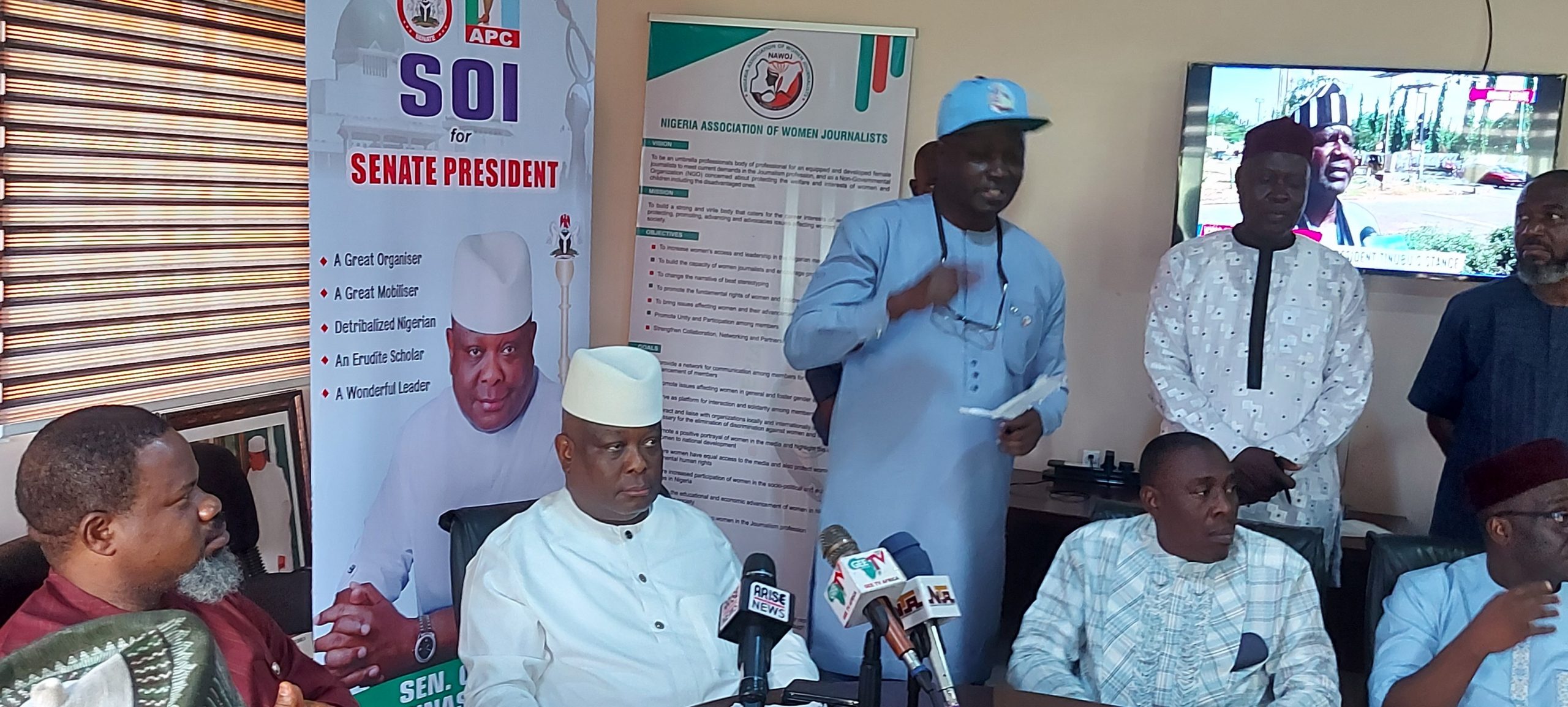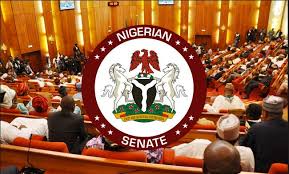A senator-elect from Imo state, senator Osita Izunaso has indicated that the All Progressives Congress (APC) did not zone leadership position of the 10th Senate to any geo-political zone of the country.
This is coming against the backdrop that the Party recently zoned the Senate presidency to the South-South where it announced Senator Akpabio and Senator Barau Jibrin as candidates for Senate President and Deputy.
Senator Izunaso, spoke on Saturday while addressing Newsmen after a courtesy visit to the Headquarters of the Nigeria Union of Journalists Abuja.
He told newsmen that He is contesting for the position of the Senate presidency in the 10th Senate to rebrand legislation in the interest of nation’s peace and development
According to him the APC is in consultation with all interested persons for leadership positions of the 10th Senate, adding that no individual has been selected by the senator Bola Ahmed Tinubu led administration for any position in 10th National Assembly.

Senator Izunaso, who insisted that he is the most qualified to lead the 10th Senate appealed for the support and cooperation of all the senators – elect for a robust 10th Senate.
When asked about his alliance with former Governor of Zamfara State Abdulazeez Yari whether he will be the President, he said
“I am the next Senate President by the special grace of God. That does not mean that we are not talking to other people, we are talking to Abdulazeez Yari, we are consulting other people who are contesting the election, but “I can assure you that at the end of the day that I, Osita Izunasor will be the next Senate president by the grace of God.”
On whether he was not worried that the party chose Senator Akpabio as its choice for the Senate Presidency? He said,
“Don’t make the mistake, the party has not chosen anybody, when the party choses you will know. The party is calling for further and better consultations and we have just gotten an invitation that we are to meet tomorrow. We are meeting.
“No it has not been zoned, there is no zoning template. You should know better, the party merely advised.
“Haven’t you been seeing people going to visit the National chairman? What has been his position? Even when they addressed somebody as Speaker in his office you saw what happened, he said no, you are not Speaker. Aren’t you following what is going on? There is no zoning yet.”
“Of all the candidates, non has my legislative experience. I was Chief Press Secretary to a Senate President, before I was elected into House of Reps. I was elected a Senator.
“So, I have what it takes in terms of experience. We also need to rebrand the National Assembly. Since 1999, it has been having negative image.
“When you talk about our lawmakers, Nigerians talk about Constituency projects, they see it as huge money thrown to lawmakers.
“That’s not true . Such money are given to MDAS.
How do we rebrand : that’s why my campaign slogan is hope assured.
“It is one strategic arm that swears in themselves. Unlike Executive, no CJN does that. The Senate President and Speaker take oaths in presence of Clerk of National Assembly. They are truly Indepedent.”
He said his legislative agenda is built ariund national unity and integration, adding that there must be a country before politics.
Other aspects of his legislative agenda is security saying in the south east where he comes from people don’t come out on Mondays.
He said youth restiveness and unemployment are the third leg of of his legislative agenda.
He assured that the Senate under him must collaborate with the Executive adding that when legislators collaborate it should not be viewed as subordinating themselves.
The National President of the Nigeria Union of Journalists
Comrade Chris Isiguzor commended the aspirant for associating with his first professional calling..
He said Izunasor has garnered the necessary experience and he is ready to deploy it when he becomes the Senate President.



